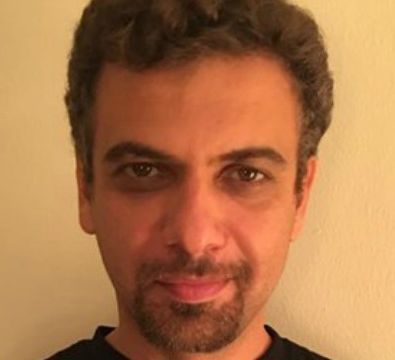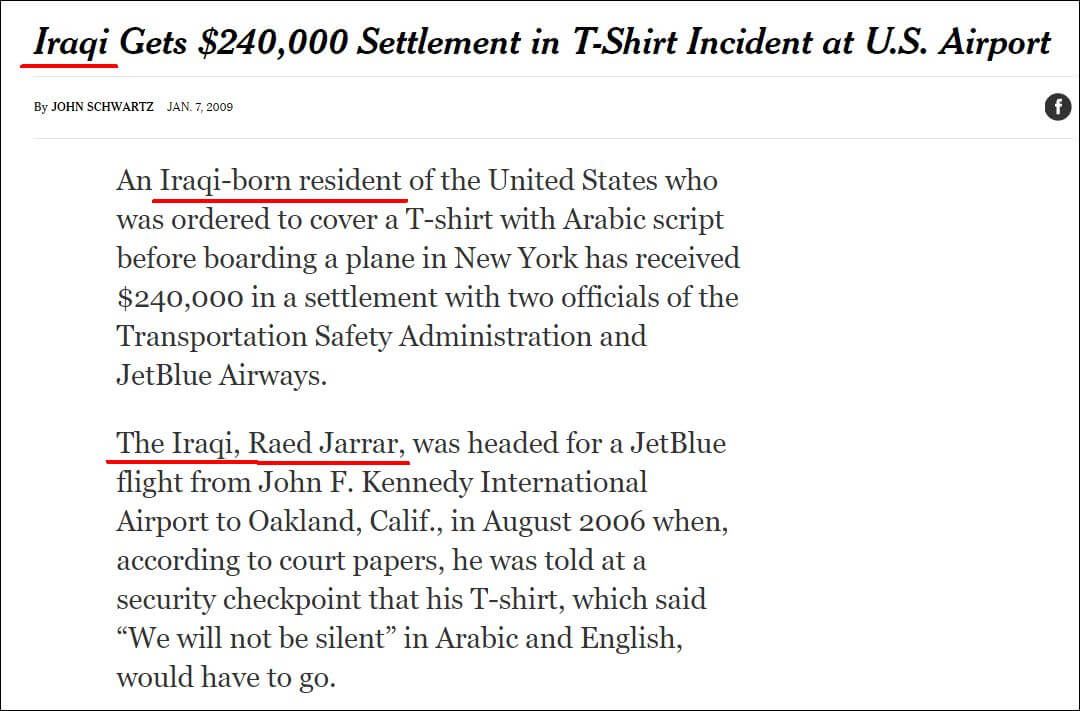Raed Jarrar, the advocacy director for the Middle East and North Africa at Amnesty International USA asks the question in the New York Times:
While Jarrar may not have written the headline, a further read of his opinion piece shows that Jarrar’s father died in Jordan. Not Israel. Not the Palestinian territories.
So no, Israel certainly did not prevent Jarrar from mourning his father.
Join the fight for Israel’s fair coverage in the news
Jarrar was, however, prevented from visiting his extended family in Jenin, falling foul of an Israeli law targeting anyone who openly advocates boycotting Israelis or Israeli goods, including those produced over the Green Line.
This as a result of Jarrar’s position at Amnesty International, an organization with a history of anti-Israel activities. In 2017, to mark “50 Years of Dispossession,” Amnesty introduced a campaign calling upon governments to “ban Israeli settlement goods from entering your markets, and to stop companies based in your country operating in settlements or trading in their goods – and help put an end to the cycle of violations suffered by Palestinians living under Israel’s occupation.”

It’s also hardly surprising that Jarrar was flagged by Israeli authorities. He previously worked for the American Friends Service Committee (AFSC) an organization that actively promotes boycotts, divestments and sanctions (BDS) campaigns against Israel. In addition, JNS reports that Jarrar arrived in Israel along with a delegation from Interfaith Peace Builders, an organization known to promote boycotts against Israel.
Indeed, NGO Monitor has plenty of material evidence concerning Jarrar’s history of anti-Israel activism.
The death of a close relative is undeniably tragic. There’s something incredibly cynical, however, at taking such an event and turning it into an opportunity to bash Israel in the New York Times on behalf of a politicized organization such as Amnesty. Given that Jarrar was not attending a funeral in Jenin, Israeli authorities were under no legal or moral obligation to make an exception for Jarrar to enter Israel or the disputed territories.
That Jarrar waxes lyrical about his Palestinian identity and his family connections to the land offers further evidence that Amnesty International is incapable of separating the personal from the political.
Could my teenage dad fleeing his hometown half a century ago have imagined this happening to his son? I wanted to visit his old school and my grandparents’ old house. I wanted to touch the olive trees he climbed as little boy, and eat hareeseh, my favorite Palestinian dessert made of semolina and coconut, from the shop in central Jenin. Does it even exist anymore?
How is it possible for Jarrar not to be driven by a particular agenda in his work as Mideast advocacy director for Amnesty? He practically spells out his intense personal interest in the conflict in his op-ed.
There is something ironic about Jarrar’s playing up his Palestinian identity credentials seeing as he was the subject of a story in the New York Times itself in 2009. Note how the NY Times defined Jarrar then:
Shame on Raed Jarrar for his cynical political opportunism and shame on the New York Times for publishing it.




